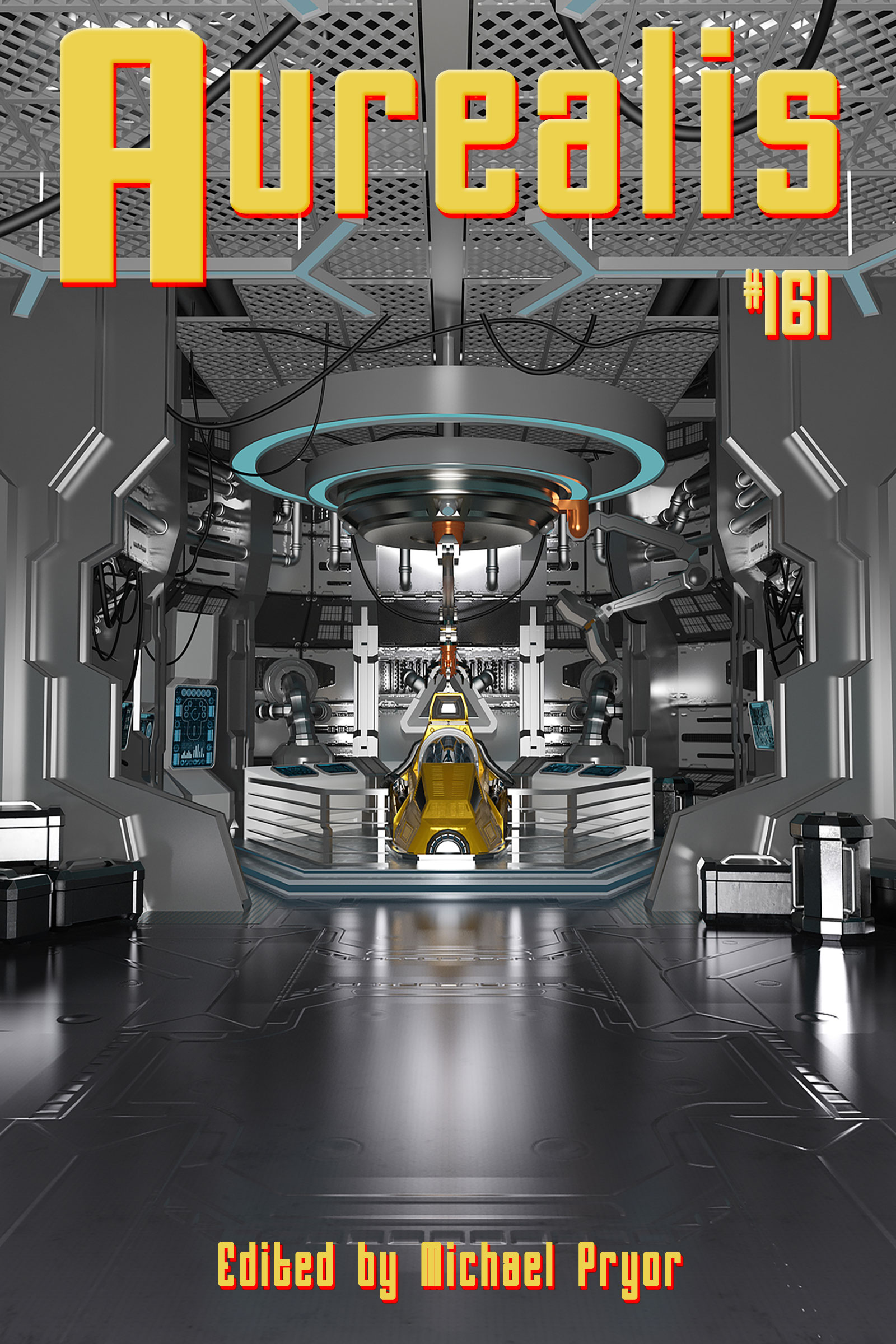Aurealis #161
$3.99
Aurealis #161 has fiction from Jordan Chase-Young, Declan Ellis and L.P. Melling. Our nonfiction features articles by Lachlan Walter, Declan Ellis and Amy Laurens. Our stunning internal art this issue comes from Josh Hardie, James Spence and Simon Walpole. Aurealis, your first stop when you need an imagination tune-up.
- From the Cloud — Michael Pryor
- Something Rich and Strange — Jordan Chase-Young
- People of the Forest, Reflections of the Heart — L P Melling
- The Star Songs — Declan Ellis
- Science Fiction Tropes in Modern Music — Lachlan Walter
- Transgressing Sacred Boundaries in Science Fiction — Declan Ellis
- Discworld: Pratchett’s Death: Humanity’s Ultimate Mirror — Amy Laurens
- ‘The Garden of Forking Paths’ and ChatGPT — Matthew Harrison
Australian politicians, of all stripes, need to read more science fiction.
At the very least, reading more SF could break them out of their chronic short-term outlooks where the next election is just about as far ahead as they can see. SF is about the future, about the challenges and opportunities that face us. SF can be about the next hundred years, the next thousand, the next million. Reading SF could encourage our politicians to gaze at the horizon and make decisions that truly consider the future.
Also, reading science fiction could help our politicians get a grip on what the future could look like if they don’t get their act together. They have plenty of dystopias to read and, if they get scared of such futures, it could be a good thing and encourage them to act now.
As well as presenting the doom-laden future, science fiction can present the amazing future. Reading well in the genre, politicians can get energised about the possibilities and start to prepare for them. Not just the glittering technology—although it would be really cool to have politicians revved up about such stuff—but about culture and societal change. Read SF and get excited, politicians!
If politicians aren’t prepared to read more science fiction, they should at least appoint a Science Fiction Think Tank to advise governments on all sorts of good stuff. Of course, leading Australian science fiction industry figures would need to be part of such a group.
Needless to say, if called upon, Aurealis would serve our nation wholeheartedly.
All the best from the cloud!
Michael Pryor
From Something Rich and Strange by Jordan Chase-Young:
Seely Rao lurched out of the cold dreamless dark to the shriek of claws ripping open her cryo-tank. Her amygdala woke before her muscles did, shouting panic from its cradle of protective circuitry. The claws belonged to a purple creature semi-visible through the coffin-like tank’s crystal walls, a man or something like it but also not, something grotesque and many-armed.
From People of the Forest, Reflections of the Heart by L P Melling:
Jane, already seven years old, held the tablet and swiped the screen with dexterous movements and agile fingers. She matched the shapes and symbols in the puzzle game quicker than ever before. Two squares lit up leaf green as another matching pair disappeared and the device chimed into the trees.
From The Star Songs by Declan Ellis:
When Dr Gunnel first saw them, he cried. ‘It’s not just words,’ he said. ‘It’s poetry.’
From Science Fiction Tropes in Modern Music by Lachlan Walter:
In the 1950s, two distinct cultural phenomena emerged from the US: popular music, and science fiction films. Driven by the emergence of teenagers as a distinct demographic hungry for entertainment, both popular music and science fiction films greatly expanded upon the influences that preceded them—rhythm and blues, rockabilly and country music for the former. Universal’s gothic horror films for the latter—to create thoroughly modernised artforms that spoke directly to the desires, fears and dreams of their intended audiences. These artforms remain with us to this day. While the differences between artists such as Elvis Presley and Childish Gambino may seem so vast as to appear irreconcilable, as may the difference between films such as The Day the Earth Stood Still (1951) and Avatar: The Way of Water (2022), the core of them remains the same.
From Transgressing Sacred Boundaries in Science Fiction by Declan Ellis:
There’s a paradox at the heart of science fiction.
From Discworld: Pratchett’s Death: Humanity’s Ultimate Mirror by Amy Laurens:
Sir Terry Pratchett is hardly the first or only author to include the robed, scythe-bearing skeleton in his rota of characters; indeed, the Grim Reaper may be said to only make his appearance in Pratchett’s work because of his abiding familiarity. After all, that’s Pratchett’s speciality: his particular brand of satire relies on taking the tropes of the familiar and not only subverting them, as all satire does, but also twisting them into a mirror of the very deepest and most profound attributes of humanity—at least in the latter half of the Discworld series.
From ‘The Garden of Forking Paths’ and ChatGPT by Matthew Harrison:
Twentieth-century Argentinian writer Juan Borges is known for his visions of infinity, his characters trapped in an unalterable fate.




